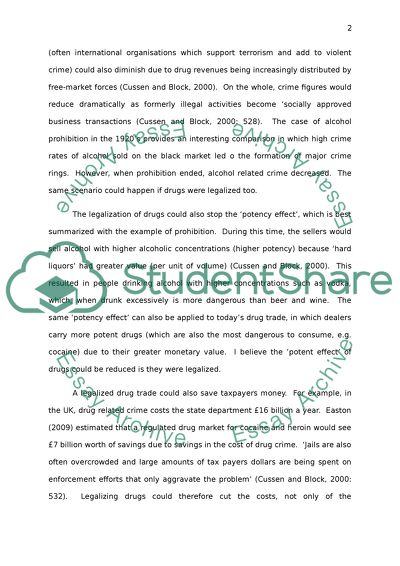Cite this document
(“Legalizing drugs Essay Example | Topics and Well Written Essays - 1000 words”, n.d.)
Retrieved from https://studentshare.org/other/1417007-legalizing-drugs
Retrieved from https://studentshare.org/other/1417007-legalizing-drugs
(Legalizing Drugs Essay Example | Topics and Well Written Essays - 1000 Words)
https://studentshare.org/other/1417007-legalizing-drugs.
https://studentshare.org/other/1417007-legalizing-drugs.
“Legalizing Drugs Essay Example | Topics and Well Written Essays - 1000 Words”, n.d. https://studentshare.org/other/1417007-legalizing-drugs.


